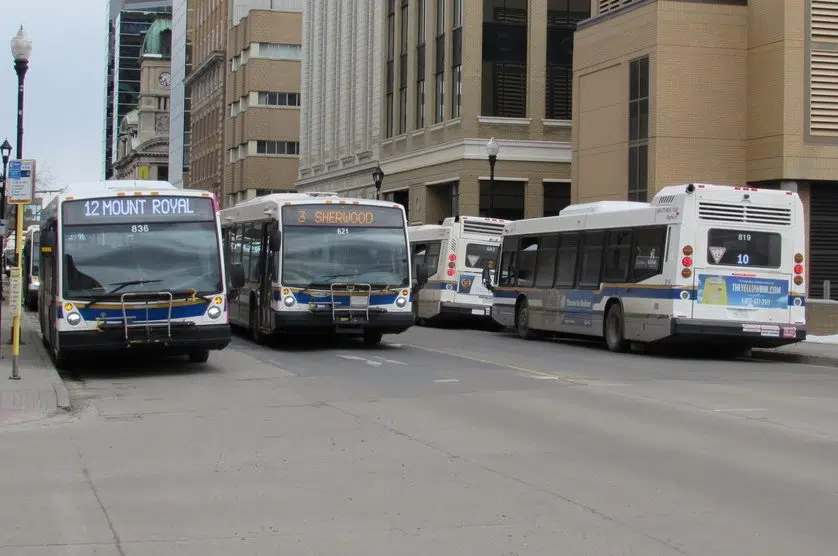For the first time ever, the City of Regina could soon have a Transit Master Plan that would guide and expand the city’s public transit system for the next 25 years.
City administration was directed to create the plan in July 2020 and it will be presented to the city’s executive committee next week. If approved, it then will go before city council the week after.
“This has been a long journey but one that is well worth the travel,” Kim Onrait, executive director of citizen services with the City of Regina, said Tuesday.
“This plan leads Regina Transit in a direction that is customer-focused and modern. It improves transportation in our community, manages growth to create a sustainable and attractive option that is achievable.”
The plan has several priorities and guiding principles, including customer experience, equity and sustainability. It was built to align with the city’s other major guiding plans, including the Official Community Plan and the recent Energy and Sustainability Framework.
The city engaged a consulting firm to help figure out where Regina is compared with other cities and what the current ridership and potential ridership wants in transit.
Thomas Pacy with Dillon Consulting Ltd. said much of what the firm heard was about flexibility. That includes frequency and routing, hours and length of service, and how to buy fares.
There are 45 recommended actions in the report, the implementation of which range from over the next eight years to over the next 18 years and all the way out to 25 years from now.
The first steps after approval would be to focus on things that don’t have implications on the city budget. The recommended adjustment to fares, potentially making transit free for kids 12 and under, was given as an example.
In the short term, the city will focus on increasing the frequency of all routes and increased hours of operation. The report suggests a large increase in service hours in the next five years.
“This will create a situation where Regina residents and visitors can rely on public transit as a primary means of transportation,” said Brad Bells, director of transit and fleet with the City of Regina.
Onrait said Regina is a little behind on transit frequency when compared with other municipalities across Canada. But he believes increasing frequency and making trips shorter will be big parts of increasing ridership.
“People don’t mind getting on a bus if they can get from A to B in a reasonable amount of time,” said Onrait.
The report also has a focus on making sure transit is accessible, so there’s a look at making things more integrated between conventional transit and paratransit. Part of those moves will be the on-demand service that has been piloted for about two years.
“We’ve gotten very good feedback from the public that have used that service and we will continue moving it forward to help achieve the goal. It’s one piece of being able to do that,” Onrait said.
One of the recommendations is to continue with the plan to move all of Regina Transit’s fleet over to electric or another alternative fuel, gradually, by 2039. The Energy and Sustainability Framework talks about the replacement starting in 2024 and continuing on with all new bus purchases going forward.
The plan aims to improve the transit system to make it the transportation mode of choice in Regina. In the next three years, the city has a goal to have transit make up 25 per cent of all travel in Regina; currently it’s at five per cent.
Bells admitted it’s somewhat of a “stretch” goal.
“I think we need to have a goal that we need to make our service more attractive and easier for customers to use and that will increase mode share,” said Bells.
Bells noted that when the city offers transit service for Saskatchewan Roughriders games and large concerts, it does hit the 25 per cent mark.
The plan breaks down the cost of implementing all of the recommendations into short, mid and long term and would end up costing tens of millions of dollars. However, approval of the plan itself by city council wouldn’t mean a blanket approval of every cost.
Each project with budget implications would be brought to city council for approval.











